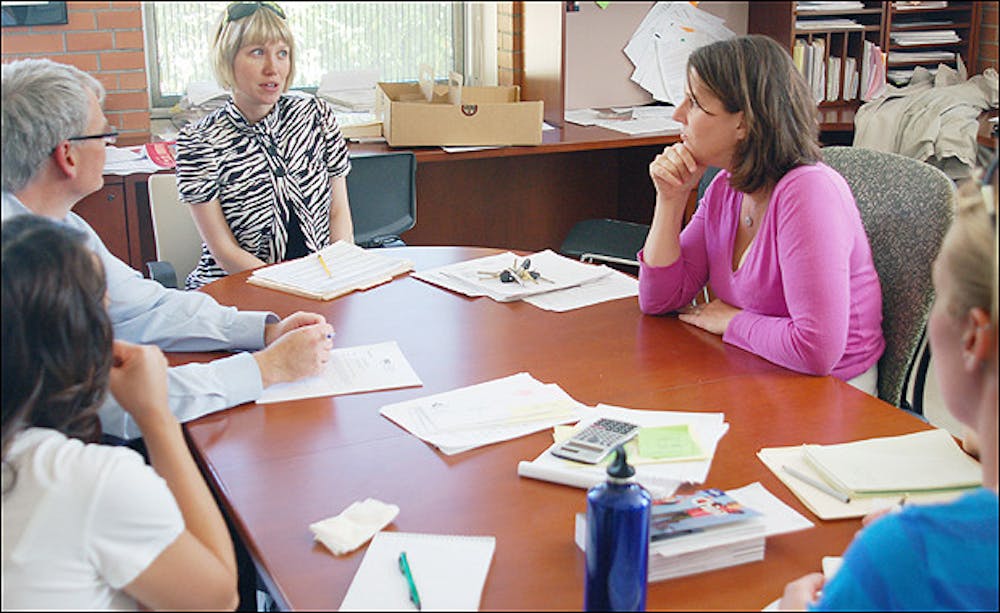A diverse team of researchers at ASU is looking at the effects of cultural environment on local health in a way team members say they hope directly benefits the local community.
The project, called the South Phoenix Collaborative: Leveraging Culture and
History to Support Healthy, Resilient and Just Communities, coordinates efforts from a wide range of social-science fields into research within urban South Phoenix.
The South Phoenix Collaborative addresses the complicated problem of improving a neighborhood’s health outcomes through social and cultural dynamics, said School of Human Evolution and Social Change associate director Alexandra Brewis Slade.
Brewis Slade, who is also one of the project’s principal investigators, said this interdisciplinary approach links the study of physical and social environments as they impact health, which has let the project itself be continuously evolving.
“We have multiple scientific goals that are defined by the people involved, as opposed to defined by the project,” she said.
Assistant professor of anthropology and principal investigator Amber Wutich said the South Phoenix Collaborative is a unique effort, because the research team realizes that cultural dimensions are factors in shaping public health issues. She said this new approach to analyzing problems like obesity and diabetes will hopefully “fit together the pieces of the puzzle” and engage the South Phoenix community in finding some answers.
“It’s not a methodology of studying and finishing a project and patting yourself on the back,” Wutich said. “It’s … a commitment to understanding whatever the problems the community faces, however they’re evolving over time, [and] what we, as researchers, can bring to the table to help them face those problems and solve them.”
The research team’s efforts have already yielded concrete results, said School of Sustainability graduate director Christopher Boone, another principal investigator.
Boone said aspects of a community’s urban environment, such as the neighborhood’s amount of public parks, usable sidewalks and access to nutritious foods, may be playing a role in the higher instances of obesity and diabetes seen in less-affluent Phoenix communities.
“The availability of high-quality, nutritious food at reasonable prices is very difficult to find in low-income neighborhoods — precisely where you’d want to be able to find it,” he said.
Boone said he hopes combining his research efforts with the social-network analyses of his colleagues in the South Phoenix Collaborative will lead to positive and usable public health changes.
One of the team’s research projects is to gather personal health and household stability data from questionnaires given to families in urban South Phoenix neighborhoods, said Niki Weller, a sociology graduate student and research assistant in developing the interview protocol.
Weller said this process will hopefully shed light on the neighborhood’s level of health awareness and what needs to happen to improve health behaviors impacting these families and their children.
“The importance here is to get information that will benefit this particular research project, but also, this information will directly impact the south Phoenix community,” she said.
The South Phoenix Collaborative has many positive results besides the research itself, said Meredith Gartin, a School of Human Evolution and Social Change graduate student who has contributed to the project since research began more than two years ago. From a student’s perspective, she said, it gets undergraduates working in the field and graduate students learning how to conduct research.
But more importantly, Gartin said, the South Phoenix Collaborative is a chance for everyone involved in the study of social sciences to become more engaged in the effects of their research.
“I think that just being a presence, and just being socially embedded in the community through a university, says more than we could ever perceive [through research alone],” she said. “I believe we have a project here that does that.”
Reach the reporter at trabens@asu.edu.




